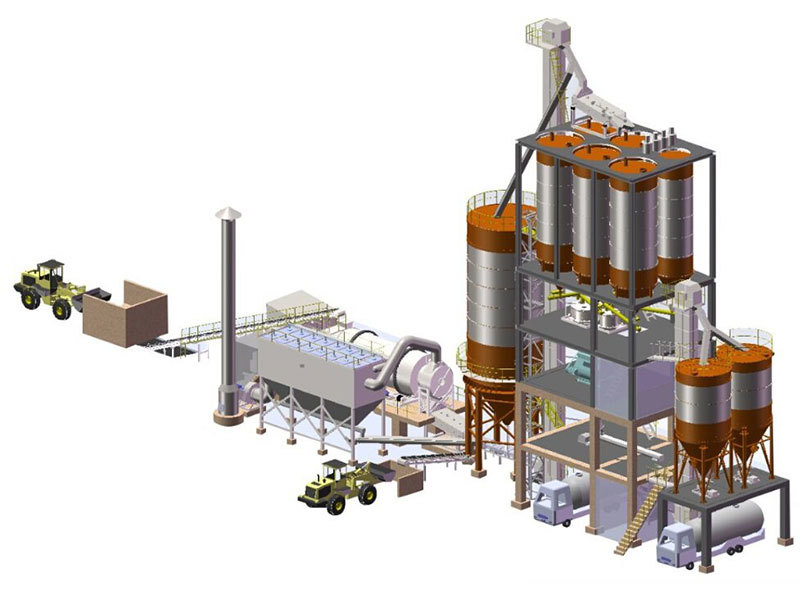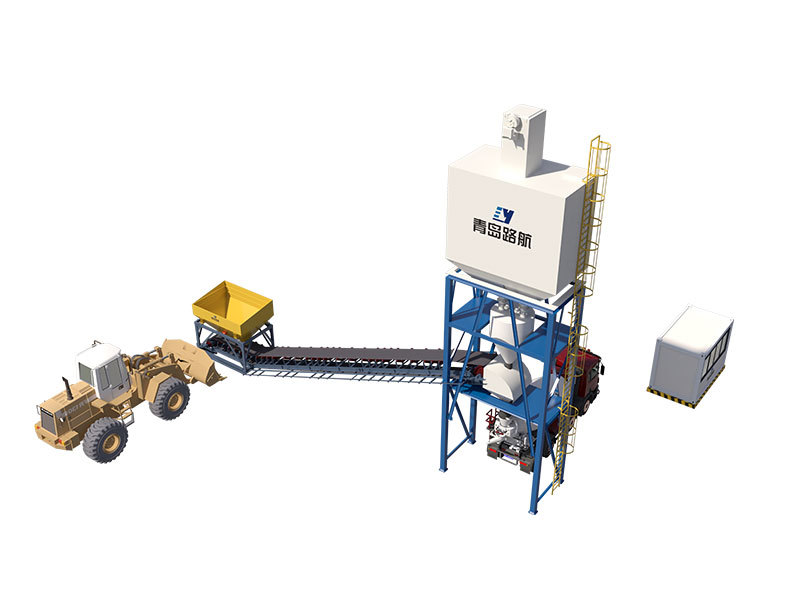Real-Life Applications of Mortar Grout Pumps in Construction
Release time:
Jul 11,2025
Understanding Mortar Grout Pumps: An Overview Mortar grout pumps have become essential equipment in the construction industry, particularly for projects that require the efficient application of mortar and grout. These machines are specialized for transferring materials through a pump mechanism, allowing for precise and effective distribution. Within this article, we will delve deep into the real-

Understanding Mortar Grout Pumps: An Overview
Mortar grout pumps have become essential equipment in the construction industry, particularly for projects that require the efficient application of mortar and grout. These machines are specialized for transferring materials through a pump mechanism, allowing for precise and effective distribution. Within this article, we will delve deep into the real-life applications of mortar grout pumps, exploring how they improve construction processes and outcomes.
The Importance of Mortar Grout Pumps in Modern Construction
In today's fast-paced construction environment, efficiency and quality are paramount. Mortar grout pumps play a crucial role in achieving both. By automating the application of mortar and grout, these pumps reduce labor costs and minimize the time required for manual applications. They also ensure a consistent mix and flow, which is vital for the durability and integrity of various structures.
Key Features of Mortar Grout Pumps
Understanding the features that define mortar grout pumps can help us appreciate their functionality:
- **High Pressure**: Most mortar grout pumps are designed to operate under high pressure, enabling them to transport thick materials over long distances and to greater heights.
- **Adjustable Flow Rates**: Many models allow operators to adjust the flow rate based on the specific requirements of the job, providing versatility for different applications.
- **Ease of Use**: These pumps are often equipped with user-friendly controls, making them accessible for operators with varying levels of experience.
Types of Mortar Grout Pumps
There are several types of mortar grout pumps available, each suited for specific applications:
- **Electric Mortar Grout Pumps**: These are ideal for indoor projects where noise and emissions need to be minimized. They are also suitable for smaller jobs.
- **Diesel Mortar Grout Pumps**: Typically more powerful, these pumps are perfect for large-scale outdoor projects and can work in remote areas without access to electricity.
- **Trailer-Mounted Mortar Grout Pumps**: These pumps provide mobility and are excellent for large construction sites where materials need to be transported over distances.
Real-Life Applications of Mortar Grout Pumps
The versatility of mortar grout pumps allows them to be used in various construction applications. Here are some of the most significant real-life applications:
1. Residential Construction
In residential projects, mortar grout pumps are commonly used for:
- **Foundations**: Ensuring a solid and durable foundation through accurate pouring of mortar.
- **Brick and Block Work**: Facilitating the efficient application of mortar for wall construction, enhancing the speed of assembly.
2. Commercial Buildings
Commercial construction projects benefit greatly from the speed and efficiency offered by mortar grout pumps:
- **Large Scale Masonry Projects**: Mortar pumps allow for quick and consistent application, which is crucial in commercial settings where time is money.
- **High-Rise Structures**: With the ability to pump materials to great heights, these machines are vital for modern skyscraper construction.
3. Infrastructure Projects
Infrastructure development is another area where mortar grout pumps shine:
- **Bridges and Tunnels**: These pumps are essential for injecting grout into the joints and cracks of structures to ensure stability and safety.
- **Roads and Highways**: They can be used to apply mortar in pavement repairs and maintenance, helping to prolong the life of roadways.
Benefits of Using Mortar Grout Pumps
The advantages of employing mortar grout pumps in construction projects are numerous:
Increased Efficiency
Mortar grout pumps significantly decrease the time and labor required for mixing and applying materials. This efficiency allows construction projects to stay on schedule and within budget.
Improved Quality Control
With automated pumping systems, the consistency of the mortar or grout mixture is greatly enhanced. This leads to better adhesion and durability of the materials used, reducing the risk of structural failure.
Reduced Labor Costs
By minimizing manual labor, companies can save on labor costs while reallocating workers to other essential tasks on site.
Enhanced Safety
Using mortar grout pumps helps reduce the physical strain on workers associated with manual mixing and lifting heavy materials. This promotes a safer work environment and minimizes the risk of injury.
Versatility in Material Application
Mortar grout pumps can handle a variety of materials, including different types of grout and mortar mixes. This versatility makes them suitable for diverse applications across the construction industry.
Technological Advancements in Mortar Grout Pumps
The construction industry has seen significant technological advancements in mortar grout pump design and functionality. Innovations such as:
Remote Control Operations
Many modern mortar grout pumps come equipped with remote control capabilities, allowing operators to manage the machine from a safe distance, enhancing both safety and efficiency.
Smart Technology Integration
Some advanced models have integrated smart technology to monitor performance, send alerts on maintenance needs, and optimize pump settings for specific materials and project requirements.
Eco-Friendly Designs
With increasing attention on sustainability, newer mortar grout pumps are designed to minimize waste and reduce emissions, aligning with the industry's push towards greener construction practices.
How to Choose the Right Mortar Grout Pump
Selecting the appropriate mortar grout pump for your construction project involves considering several factors:
1. Project Size and Scope
Evaluate the size of the job. Larger projects may require more powerful pumps capable of handling higher volumes and longer distances.
2. Type of Material
Different projects may require different types of grout or mortar. Ensure the pump can handle the specific materials you intend to use.
3. Budget Considerations
Assess your budget not only for the purchase or rental of the pump but also for the associated costs, such as maintenance and operational expenses.
4. Manufacturer Reputation
Choose pumps from reputable manufacturers known for producing high-quality, reliable equipment. Check reviews and ask for recommendations within the industry.
Maintenance Tips for Mortar Grout Pumps
Regular maintenance is essential for ensuring the longevity and efficiency of mortar grout pumps. Here are some key maintenance practices:
1. Regular Cleaning
After each use, thoroughly clean the pump to prevent material buildup that can clog the system.
2. Routine Inspections
Conduct regular inspections of all components, including hoses, seals, and motors, to identify potential issues before they become major problems.
3. Lubrication of Moving Parts
Ensure all moving parts are adequately lubricated as per the manufacturer's guidelines to maintain optimal performance and reduce wear.
4. Following the Manufacturer's Guidelines
Adhere to the maintenance and operational guidelines set by the manufacturer to ensure safe and efficient pump operation.
Frequently Asked Questions (FAQs)
1. What is a mortar grout pump used for?
Mortar grout pumps are used for efficiently transferring and applying mortar and grout in various construction applications, including residential, commercial, and infrastructure projects.
2. How does a mortar grout pump work?
A mortar grout pump uses a mechanical pumping action to move material from a container through hoses and out to the application site, ensuring a consistent flow.
3. Can mortar grout pumps handle different types of materials?
Yes, many mortar grout pumps are designed to handle a variety of materials, including different types of grout and mortar mixes, making them versatile for multiple applications.
4. How do I maintain my mortar grout pump?
Regular cleaning, routine inspections, lubrication of moving parts, and adherence to the manufacturer's guidelines are essential practices to ensure proper maintenance.
5. What factors should I consider when choosing a mortar grout pump?
Consider factors such as project size and scope, type of materials, budget, and the reputation of the manufacturer when selecting a mortar grout pump.
Conclusion
In conclusion, mortar grout pumps have emerged as indispensable tools in the construction industry, enhancing efficiency, quality, and safety across various applications. Whether used in residential builds, large infrastructure projects, or commercial constructions, these machines provide significant advantages that help streamline operations and improve outcomes. As technology continues to evolve, so too will the capabilities of mortar grout pumps, further solidifying their role in modern construction practices. Understanding their applications and benefits can empower contractors and builders to leverage these tools effectively, ensuring successful project completions.
Key words:




